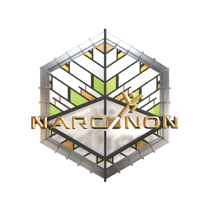Types of Prescription Painkillers

Most individuals assume that it is appropriate to seek out the advice of a trusted medical professional when they need help in addressing and resolving physical pain. It may not occur to them that the advice they receive can potentially be dangerous to follow, and may even become a bigger problem in their life than the physical pain they are currently coping with. Unfortunately, this is what often occurs for individuals who are given prescription painkillers.
About Painkillers
Prescription painkillers are drug substances that are specifically designed to reduce physical pain. This can be very helpful in certain medical situations, such as when an individual is suffering from severe pain due to an injury, surgery, cancer or other major illness. However, it is important to keep in mind that prescription painkillers are unable to resolve the underlying cause of an individual’s physical pain and as potent drug substances, they can lead to abuse and addiction problems.
Prescription painkillers work by attaching to opioid receptors in the brain and other areas of the body, thereby blocking the body’s normal ability to communicate pain. This provides the individual with a measure of relief, which can drive them to want to continue using these drug substances. Unfortunately, if they fail to address and resolve the underlying cause of their physical pain, they may soon come to believe that they have no choice but to continue taking prescription painkillers. This can result in physical dependence, where the body is not only used to having these drugs around but actually depends upon them in order to continue operating “normally.” When an individual suddenly stops taking prescription painkillers that they have become dependent upon, they usually experience withdrawal symptoms that can be highly uncomfortable or even painful. The individual may find that they begin to compulsively use the drug substance in ways other than recommended or intended, and despite any negative effects of doing so. This pushes them over the line into addiction, which can be even more dangerous and normally requires professional drug rehabilitation treatment in order to fully and permanently resolve. It is therefore very important for an individual to understand the types of prescription painkillers there are, how they affect the individual, what the lowest effective dose is, how they can resolve the underlying cause of their physical pain and come off painkillers, and even what possible alternatives are available to them.
Types of Painkillers
There are several main types of prescription painkillers, including:
- Oxycodone. Often viewed as the most potent and addictive painkiller currently in use, oxycodone is a synthetic opioid drug that is similar to heroin in how it affects the body. It is normally manufactured in a tablet that abusers will crush and snort. It is often sold under the names Percodan, Endodan, Roxiprin, Percocet, Endocet, Roxicet, and OxyContin.
- Hydrocodone. Also a synthetic opioid drug, hydrocodone is often used to treat physical pain associated with chronic conditions. It is often manufactured in a time-release tablet that abusers will crush and ingest in order to get higher doses of the drug into their system at once. It is often sold under the names Anexsia, Dicodid, Hycodan, Hycomine, Lorcet, Lortab, Norco, Tussionex, and Vicodin.
- Codeine. Another opium derivative, codeine is present in many common medications, like Tylenol, Robitussin A-C, Fiorinal, and Empirin.
- Morphine. Still another opium derivative, morphine is used to manage pain during and after surgery. It is sold under the names Roxanol and Duramorph.
- Fentanyl. This synthetic opioid is roughly fifty to one hundred times more potent than morphine. It is sold under the names Actiq and Duragesic.
In some cases, an individual who has fallen into the trap of prescription painkiller abuse or addiction may find that they are eventually “cut off” by their doctor. However, without receiving the help they need to recover, they sometimes turn to illicit drug substances in the opiate family, like heroin. Needless to say, this too is extremely dangerous for their health.
If you know someone who is struggling with the abuse or addiction or prescription painkillers, call Narconon Arrowhead today at 877-508-8151.


